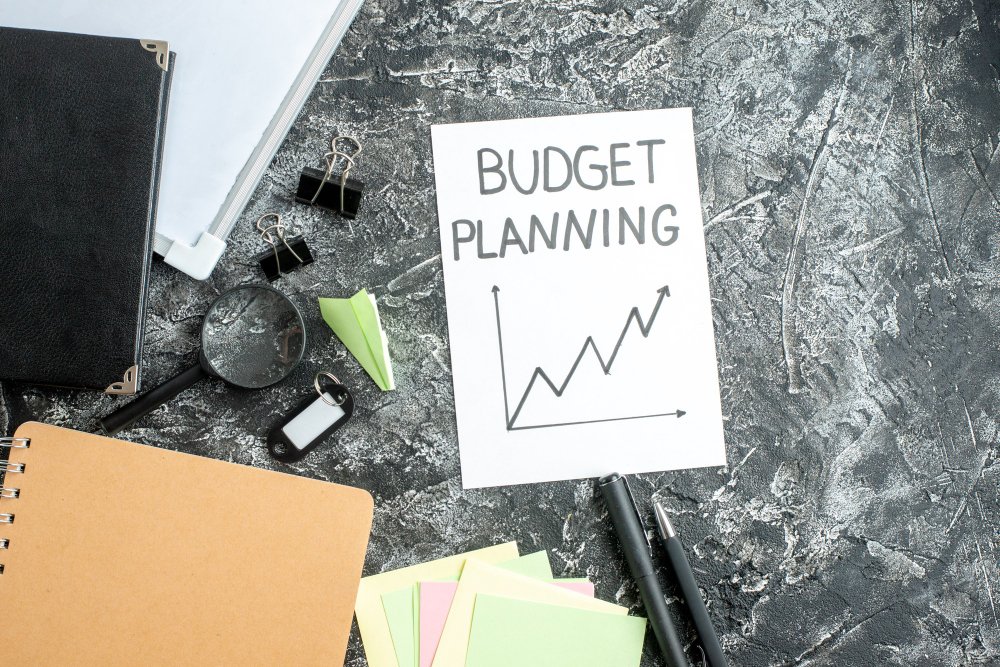Budgeting, planning and forecasting are crucial for effectively running and maintaining an organisation. These are essential parameters that ensure the longevity of a company.
Budgeting and forecasting allow businesses to formulate plans and strategies to manage finances effectively.
Both budgeting and forecasting are interlinked and are necessary for ensuring the productive management of a business. Enrolling in a CMA course may help professionals to properly plan and draft budget policies for a company by making accurate forecasts about future trends.
Read on to learn how one may improve a business’s health by performing effective planning, planning and forecasting.
1. Include Flexibility in Budgeting and Forecasting
Rigid budgets and forecasts may lack accuracy. It is a dynamic forum where things and situations are constantly changing. Hence, one needs to be able to account for those changes and the impact they can create on the business.
Outdated data and previous educational estimates may result in poor decisions. One needs to consider recent scenarios to make accurate predictions and draft a viable budget for the company. The organisation will perform better and more accurately by incorporating flexibility in the budgeting and forecasting process
2. Implement Rolling Forecast and Budget
Rolling forecasts and budgets is one of the best practices that a management accountant may perform to ensure that the policies are based on current results and not what has been predicted several months ago. This helps to make forecasts and prepare a budget for the coming quarter and not for the entire. Every quarter the same process continues and this results in a better alignment of the company’s budget with the forecasts.
This process enhances the accuracy of predictions and helps to formulate a cost-effective budget for the next quarter.
3. Properly Plan Your Budget
Before drafting a budget policy, it is important to plan the budget for every possible situation. The right way of moving ahead is to plan before execution. Hence, the first step is to decide upon a practically possible budget strategy and then take the necessary measures to implement the same.
A professional with a CMA Certification can master the skills of budgeting and forecasting while considering the potential impact it will have on the business.
4. Maintain Seamless and Transparent Communication
Proper communication is the key to achieving any managerial objective. One needs to maintain broad channels of communication with every division of a company as budgets and forecasts affect every area of the business. The company’s organisational and operational strategies must be in sync and policies should be made in such a way that is capable of dealing with potential hurdles.
5. Enhance Team Involvement
The process of budgeting and forecasting should be a team effort as it will help every member of every team to better understand the policies and decisions. Also, in this way, every member of the company will feel included and valued. By including every department in this process, the management can gather valuable data that is to be considered while making predictions and deciding a budget.
Additionally, by leveraging the entire staff, one can ascertain multiple viewpoints on the current industry scenario and potential future. These viewpoints are integral for formulating realistic budgetary decisions.
6. Be Clear About the Objectives
The main objective behind forecasting is to predict the financial future of a company. Forecasting is a necessary tool for apprehending the impact of business decisions before executing any major plans. It is important to be clear about what one wants to achieve, for instance, deciding about the profitability for the next quarter, allocation of a specific budget to every department etc.
Not being clear about the overall objectives of a business can affect the life of a business and its profitability. Hence, it is important to have a clear-cut understanding of the driving force of the forecasts. If not, they are considered just as random assumptions.
7. Keep Plans Ready for Emergencies
It is impossible to plan for every scenario that may create a hindrance but having an idea of the obstacles that may arise in the primary stage of forecast and budget is a crucial phenomenon. One can do this by constantly tracking market trends that may affect the company.
The management must plan for emergencies that can create a negative impact on the business. Based on the recent data received from the external sources and the internal organisational departments, prepare basic plans for unforeseen circumstances that will help the company to be afloat even if an issue strikes.
8. Track Your Budget
The job is not done after initiating the budget but is only the starting. After the formulation of the budget of the company based on the forecast that has been made, concerned professionals should keep constant track of the progress of the budget. Everything should be accounted for whether it’s a minor expense or a major asset allocation.
While making forecasts and deciding the budget for the upcoming fiscal year, everything that is related to the company’s growth potential has to be taken into consideration. Analyse the market trends, client behaviour, company policies and so on.
9. Consider Profit and Cash Flow Goals
An ideal budget has a target profit and mind and creates a positive impact on the cash flow statement of the company during that particular period. These two parameters are very important and have major control over the budget.
The accuracy of the budget depends upon the ability to earn profit and positive results of the cash flow statement during the fiscal year. These two metrics allow the management to set realistic financial goals for both the profit and cash flow goals.
10. Don’t Completely Rely on Spreadsheets
Because of the growing stage of technology, everything related to record keeping depends upon spreadsheets nowadays. However, human intervention is essential and completely relying upon spreadsheets such as MS Excel for performing forecasts and budgets is not an ideal choice.
Cloud-based software is a smarter choice and it has gained immense popularity for quick financial bookkeeping services. Also, they provide flexibility and enhanced security for the data in a pocket-friendly manner. There are many cloud-based software that help in generating an estimation of the budget while making accurate forecasts with negligible errors.
Conclusion
Budgeting and forecasting are integral parts of maintaining the profitability and growth of any business. It is a difficult task that requires immense analytical powers along with management accounting skills. A Certified Management Accountant is an expert in this field who possesses the relevant expertise.
If you want to become a CMA professional then you may register for the CMA Certified Management Accountant course by Imarticus and gain the right skills and knowledge. It is a lucrative job domain and the CMA Certification along with relevant degrees will help you to step ahead of your contemporaries.



